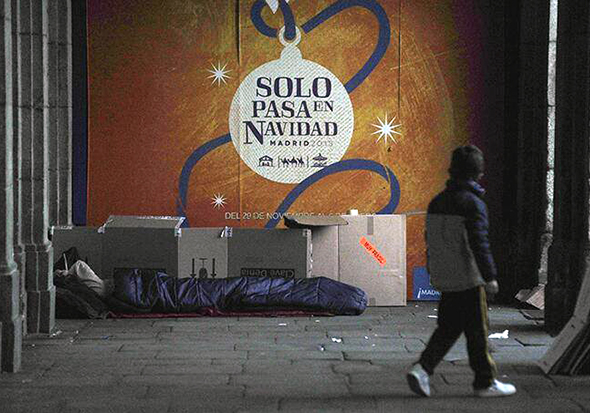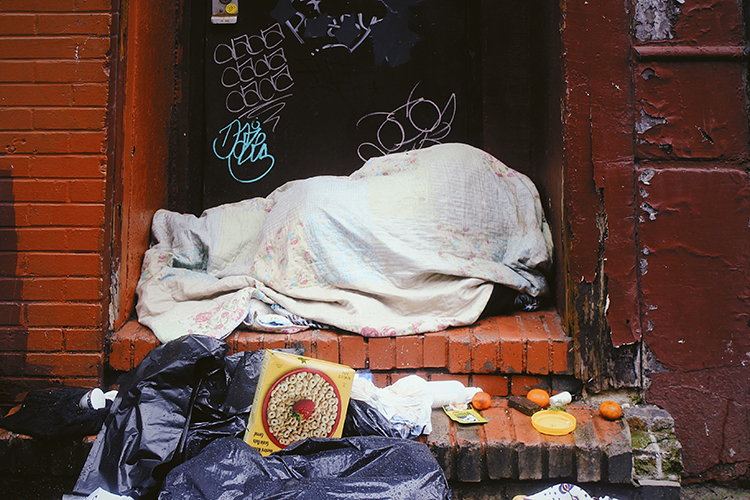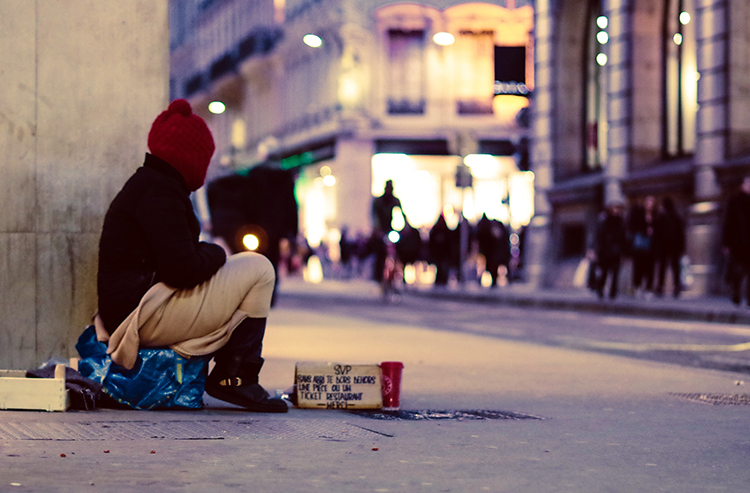For 27 years, Caritas has been highlighting the reality of homelessness during these days. A situation that affects more than 40,000 people and against which we are invited to raise our voices because, as this year's slogan highlights: "Homelessness kills. And what do you say? Say enough. Nobody Homeless".
They are called Ana y Jorge Ivan... but also Manuela, Pepe, Rosa or Yaiza... because each person living on the street has a name, a story, a process, sometimes unexpected, that has led them to be left without the most basic elements of a dignified life: a roof under which to shelter, a place to return to, a home.
This year, the homelessness campaign powered by Spanish Caritas is marked by the coronavirus pandemic in two ways: the impossibility of carrying out the actions of the campaign and the very serious impact that the pandemic has on the economy and that is taking its toll, in a particularly cruel way, on the people who have the least. "Homelessness kills".This year's motto states that homelessness leads to the death of people in extreme cases, but always kills the dignity, hopes and dreams of all those who suffer from it.
How does a person come to live on the street?
The answer is not unique but, as Jorge Ivanone of the homeless people Caritas serves, "ending up on the street is easy"simpler than we may think at first. "I saw myself on the street overnight".he adds. He is right, according to data from the VIII Foessa Report on Social Exclusion and Development in Spain, 2.1 million people suffer from insecure housing situations

The story of this almost 53-year-old Colombian is marked by the successive labor and economic crises in our country, where he arrived in 2003, fleeing the social and economic situation in Colombia. Although at the beginning, he recognizes, "had a hard time finding work"After a while, he began to run several call shops, owned by a friend. The problems started around 2010, with the closure of these call shops. From time to time he would get some work, but it was already very difficult for him so that, little by little, these small jobs disappeared. Then, unable to meet the expenses, Jorge Iván went to live with some friends. "I was very well with them, for about two or three years, until they were also very bad, they became unemployed and had to give up the apartment. I was left with no place to go.". Through a friend, she contacted Cáritas, where she was "I was very well taken care of and was welcomed the next day.". Between one thing and the other, he spent more than two weeks on the street "it is difficult" he stresses. "I had never lived that experience before. You don't know what to do or where to go. All I could think about was getting out of that situation..
Hit by the pandemic
This mental block was also suffered by Anawho found himself without a house to live in, "for trusting the wrong people" as she says, and whose situation became untenable in March, with the outbreak of the coronavirus. Although she earns a minimal rent (less than 400 €), she has also known the harshness of the street. For a time she lived in a rented room at an acquaintance's house, "But I had a problem with the person with whom she had a relationship and she threw me out and took my things; from then on everything went downhill, I asked for help, but there was always a problem: either my age, or that I was not eligible for another one because I had a minimum income or because of my dog".. Slept in bus and train stations, "but with the coronavirus they wouldn't let us sleep inside anymore and they kicked us all out." She was lucky enough to be hosted from March to July in the shelter of an NGO, but that ended and she found herself on the street where she had to live for the rest of her life. "you can't go to the bathroom, eating is complicated because they don't let you... and even less with a puppy...".
A roof and a future
Both Jorge Iván and Ana have found a way out and a hope thanks to the homeless programs of Caritas Madrid. They, and many others who have benefited from these programs, do not hide their gratitude. "Forever grateful to those who have given me this opportunity." underlines Jorge Iván, "Now I am renewing my papers to be able to find a job and study Business Administration, which has been my great desire and now I am looking forward to it"..

Ana emphasizes that "the fact that you can take a shower, sleep in a bed with sheets, eat... you can't pay for that with money." currently lives in the Juan Luis Vives municipal shelter, "very happy"but adds "I want to apply for a supervised apartment so that I can live with my puppy.".
Jorge Iván and Ana are just two samples of those 40,000 stories of the people that Caritas Spain is currently serving in its various programs for the homeless. Very different people and stories that are united by homelessness and of which, one more year, Caritas makes us aware in this campaign. "Homelessness kills. AND WHAT DO YOU SAY? Say enough. No One Homeless" that calls us to a necessary implication to put an end to this reality. .







